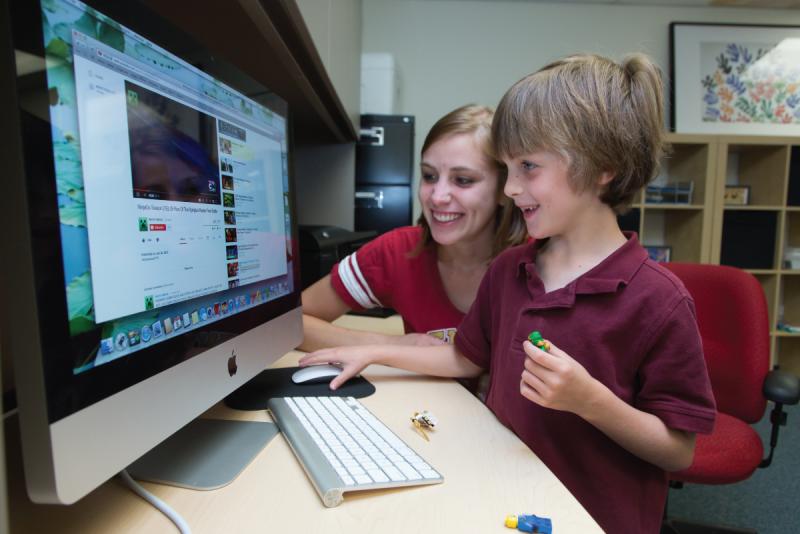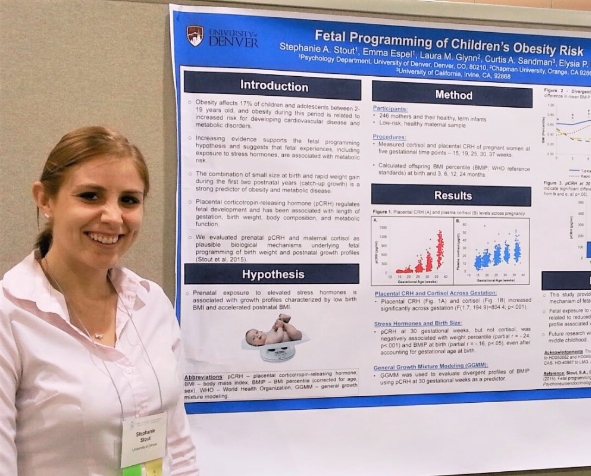It Takes a Village: Psychology Faculty Receive Grant to Support Caregivers

The Department of Psychology’s Stress, Early Experience and Development (SEED) Research Center at the University of Denver is getting an opportunity to enhance their training and community partnerships with a $250,000 grant from the Colorado Health Foundation.
The grant is being put toward developing and delivering the Branches-FFN© curriculum to a cohort of Family Friend and Neighbor (FFN) providers and leaders in the Denver Metro area.
“Branches-FFN©, [is] a program to collaborate with family, friend and neighbor caregivers and equip them with a broad stress-management and wellness toolkit and opportunities to process trauma,” says Sarah Watamura, department chair and professor in the Department of Psychology. “Branches-FFN© recognizes that it takes a village to raise a child and supporting that village via authentic collaboration and sharing scientific knowledge.”
Such collaboration will include leveraging Adams, Chaffee, Fremont and Eagle counties, which already have certified instructors to conduct related programming. All four counties have very active early childhood councils and/or nonprofits and significant proportions of Spanish-speaking families. By capturing the strengths and needs in each of these counties, the SEED Center will continue creating authentic partnerships not only in programs that already exist, but in Branches-FFN© as well.
“Branches-FFN© is part of a larger suite of programs that work to facilitate community-wide capacity building among ecological systems surrounding a child, including: parents with Seedlings©, early childhood mental health consultants with Roots©, and center directors with Branches-D©. These programs aim to honor one’s agency and capacity for change, providing wellness and trauma processing tools to critically build strength, connection and knowledge within multiple layers of a community that directly and indirectly shape children’s lives,” says Watamura.
All of these programs are designed to reduce the intergenerational transmission of Adverse Childhood Experiences (ACEs), including childhood maltreatment (abuse or neglect of the child) and household dysfunction (parental divorce, household mental illness or substance abuse, or adult incarceration). Experiencing ACEs as a child dramatically increases one’s risk of mental health concerns, substance use and relationship difficulties.
The last decade has shown an increase in both national and international efforts to build capacity and understanding of the widespread effects of trauma, resulting in many agencies offering trauma-informed training for parents. However, these trainings are often comprised of just a few hours of passive learning about the possible effects of trauma and adversity on physical and mental health, cognition, behavior, educational attainment, economic status, risky behaviors such as risky sexual conduct, and substance abuse and premature death.
While these efforts are important, informative and well-intended, they fail to facilitate enduring positive change. When individuals with significant adversity are first presented with this information in a formal setting and through a passive process (e.g., lecture, etc.), they may feel shocked, stigmatized and deeply disheartened. Parents have made statements such as, “it feels like a scarlet letter,” and “now people assume because trauma could cause these things, it does, if they know my ACE score, they think I must be a drug-abusing, low-achieving, maltreating parent.”
Targeting adults who were likely exposed to ACEs can help them gain beneficial trauma processing and stress management skills and can also help create understanding in the surrounding communities. This is particularly important today in the time of COVID-19 where all of us are experiencing a new degree of elevated stress.
“In Covid-19, demands on families are higher than ever, with many parents expected to support in-home, online learning. It is likely that many families are needing to rely on informal networks of caregiving support now more than ever. Developing and implementing Branches-FFN© recognizes the importance of these informal caregivers within the community in facilitating child development and allows for explicit support and enrichment for these caregivers,” says Watamura.
Caregivers consistently report having no time or energy for their own needs — and COVID-19 has only made this more obvious. Branches-FFN© will help FFN providers to improve their own well-being (e.g., teaching stress management) and to build leadership skills around promoting well-being in others.
Further, the SEED Center has added “specific COVID-19 content and a focus on leading during crisis in light of current circumstances,” says Watamura.
By focusing on these needs, the SEED Center first works to change the trajectory of the parents’ own well-being, so they can be the critical, amazing caregivers needed to turn adversity into opportunity for children. By helping adults to “put on their own oxygen mask first,” the SEED Center hopes to build adult resilience and effect change beyond the present.





